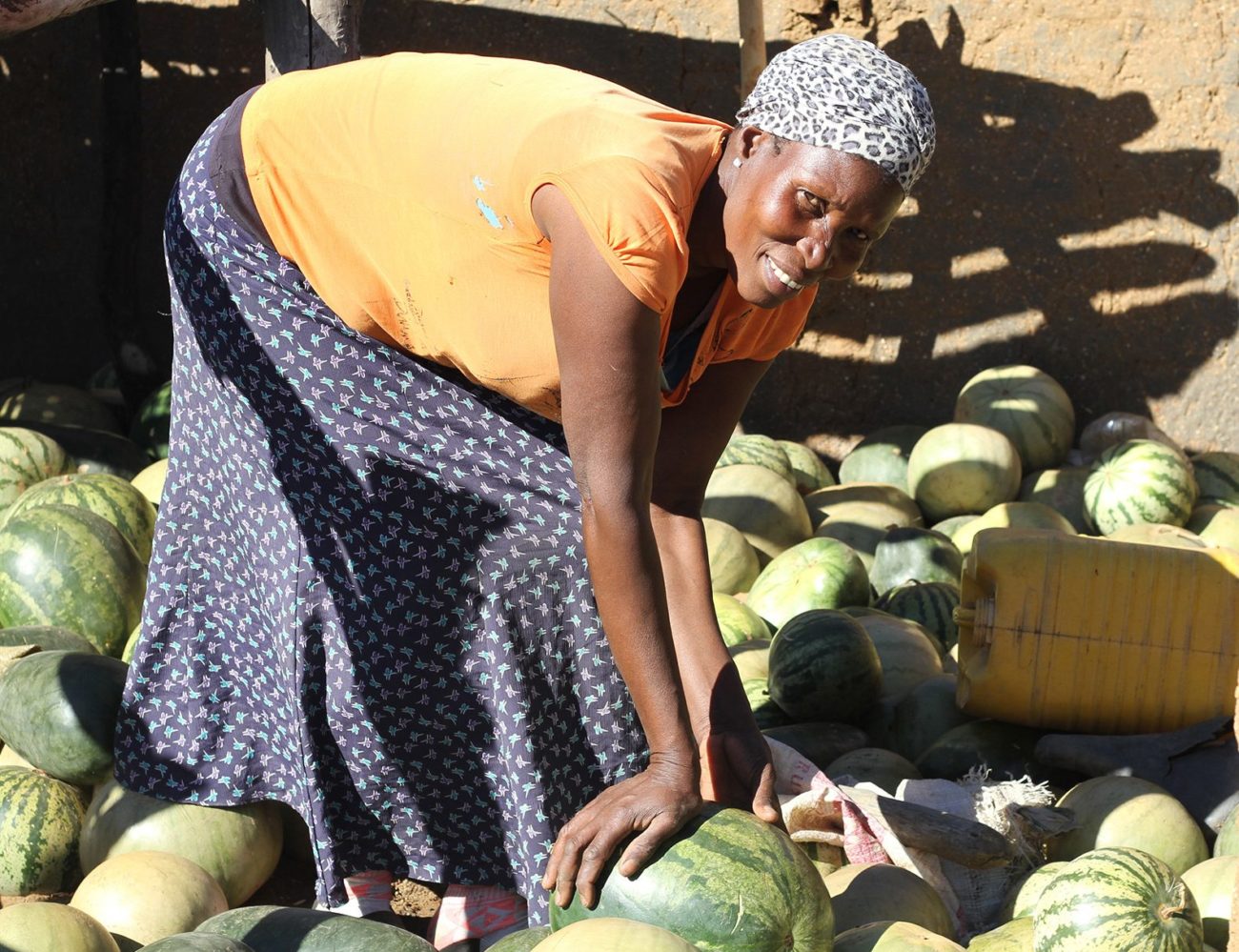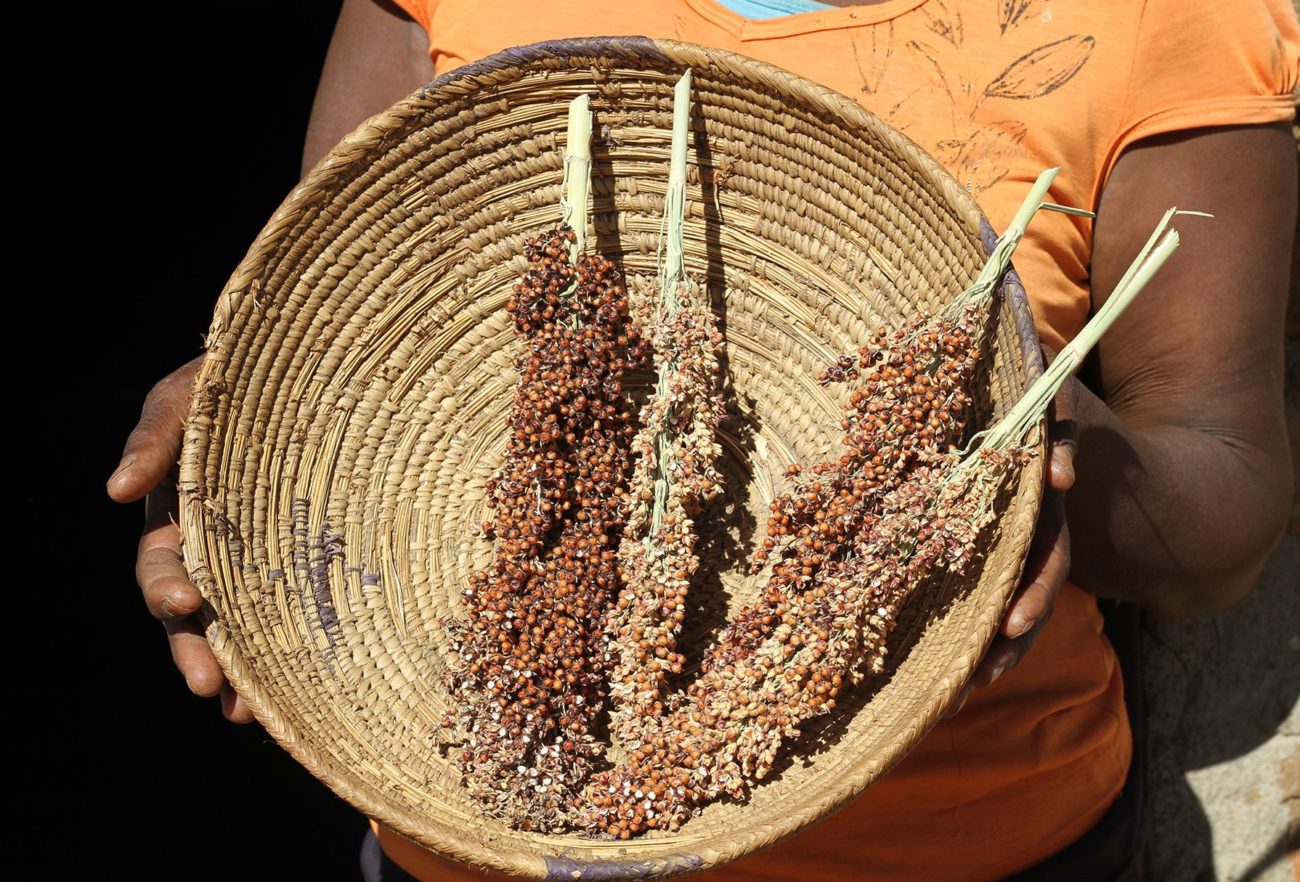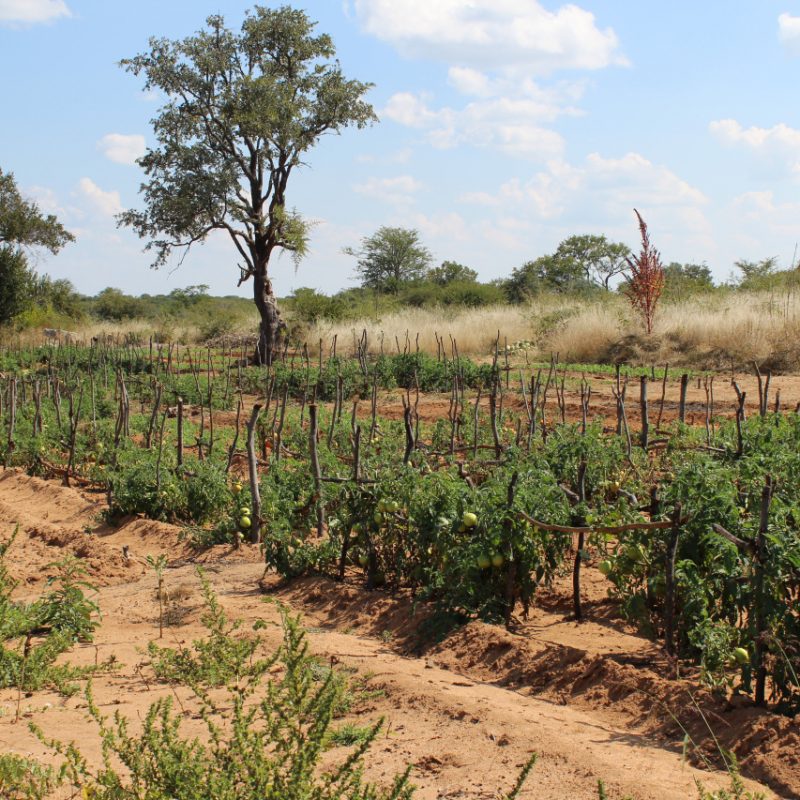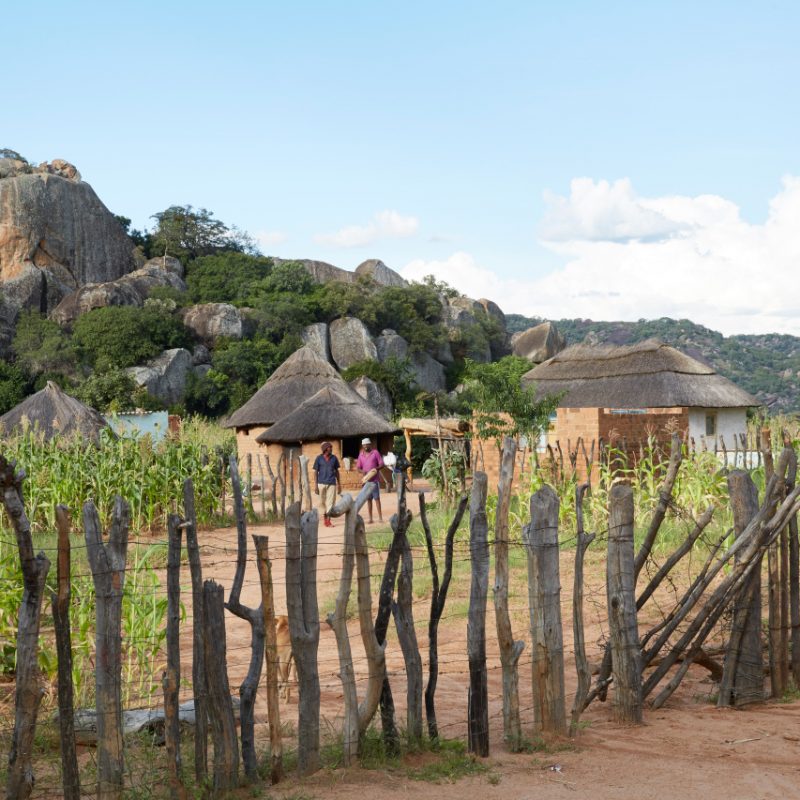My name is Simangaliso and I live with my eight children in Mangala village, near the Kalahari basin.
My husband has passed away. I have a few acres of land on which I cultivate millet and sorghum. Together with a group of women, we have an irrigated community garden, where I also grow vegetables like tomato, carrot, beetroot, onion, pumpkin and peas. If I have excess harvest after feeding my family, I sell it on to an intermediary. I feel proud that I have been able to construct my house with the money from the sales. I also keep some goats – these are my back-up for emergencies, to sell if the harvest fails.

The last few years have been very tough for me and the other farmers in the Matobo District.
First there was a severe drought, the worst in the region for decades. Then last year the big flood came. The rain is first too little and then too much, which makes it hard to grow crops. And now we have to deal with a serious shortage of cash. Even though this year I have some excess harvest to sell, people have no cash to buy it. With one crisis following another, it is hard for me to recover.

In the past, we did not have drought every season, now we have it almost year after year.
In the past, there used to be enough rain and it came on time, so we knew when to plant and harvest as we had always done. Now the rain is random.
Nowadays we are forced to send the children to school with hungry stomachs, because there is nothing we can give them to eat.
I never used to have to buy vegetables for my family, these days I have to do so frequently. I used to be able to store cereals and use them if there was a long dry season.

Last year we were hit by one of the worst floods that people can remember.
There were many days of heavy rainfall, the rivers flooded and the village dam could no longer hold the water. Everything was swept away! The flood destroyed houses and washed away all the crops so we do not have the harvest to feed the family. Even two schoolchildren were swept away by the water and drowned.
But then there is the rain that comes and goes – but goes far too quickly. It has become very difficult to produce crops in these conditions.
To get a better harvest, I now start planting during the very first rains so that my crops are able to resist the dry period which may follow.
A few years ago, I started to cultivate millet and sorghum instead of maize. They withstand drought much better than maize, which needs a lot more water. Also, I do not till and I use mulch for making the soil more fertile. Like this, I have been able to harvest some grains even in dry periods.

Two years ago, we got a solar pump to irrigate the communal vegetable gardens with water from the river.
Since then it is much easier to grow vegetables, even if the rain does not come as expected. Some people in the village have built storm drains or planted vetiver grass to maintain the soil. After last year’s deadly flood, the children are now accompanied to school by adults.


***
The semi-arid Matobo district of Zimbabwe is prone to food insecurity virtually on an annual basis. Livelihoods are limited by low agricultural productivity, limited market access and weak social cohesion. Communities struggle with increasing numbers of drought and flood events, coupled with land degradation, gully formation, river and dam siltation and the drying of wetlands and rivers. The impact of climate change has begun to jeopardize decades of development efforts in the district.